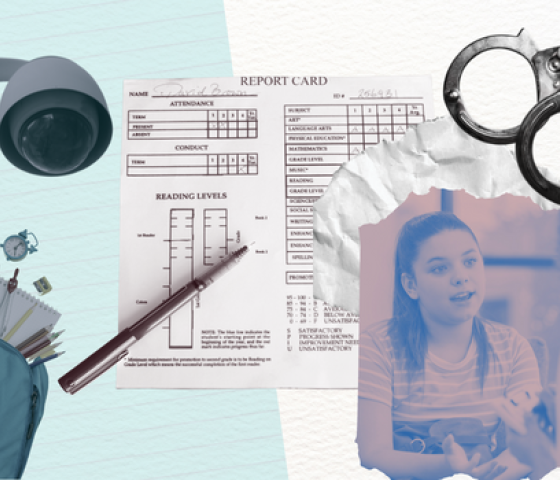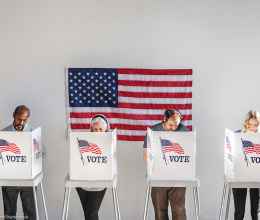As students head back to school, safety is understandably at the forefront of every parent’s mind. The massacre at Robb Elementary School in Uvalde, Texas, combined with law enforcement’s horrifically insufficient response, raises a pressing question: how can we ensure that our students are attending schools that are safe, supportive, and allow for them to reach their full potential?
We know that one measure frequently makes children feel less secure: increased police presence, which adds an atmosphere of militarization and criminalization at the expense of student well-being. Instead of allowing law enforcement to arrest students as part of daily school discipline, we must focus on providing children with safe learning environments by investing in mental health professionals and restorative justice practices.
Gov. Phil Murphy announced a plan on Aug. 30 to create digital maps of every school in New Jersey so that first responders have quick access to the physical layout of schools when responding to an emergency, an investment that will help secure students’ physical safety in an immediate crisis. Importantly, this provides resources for first responders when their intervention is necessary and does not expand law enforcement’s regular presence in schools.
"Black students in New Jersey were suspended at three times the rate of white students, at 8.9 percent vs. 2.7 percent."
We cannot, however, focus solely on the security of physical school facilities. We must foster a daily sense of safety for students by ensuring a supportive learning environment, and the resources to achieve this already exist.
Every New Jersey school district receives annual funding called “categorical school security aid,” but, unfortunately, no guidelines exist for spending or tracking the aid. One day after the Uvalde shooting and shambolic law enforcement response — amid a hasty state government response to deploy more law enforcement in New Jersey schools — the ACLU of New Jersey and Education Law Center, along with more than 20 other organizations, petitioned the New Jersey Department of Education to create rules surrounding the use and reporting of this funding. However, the NJDOE refused to create such rules or accept the proposals.
The Legislature has the power to create more transparency surrounding districts’ use of security aid and to increase funding for supports that will truly help students. We need policies that focus on:
- Hiring mental health professionals trained to address student behavioral issues.
- Restorative justice practices, such as conflict resolution in small groups rather than suspension or arrest.
- Limiting school security funds from being used solely on hiring law enforcement officers.
- Curricula encouraging social-emotional learning, which recognizes that students’ ability to learn is related to their overall lives.
- Reporting requirements for this funding.
We need all stakeholders — the Legislature, the NJDOE, school districts, parents, and students — to re-envision school security beyond militarizing the school environment. When students feel comfortable in school, they’re better able to reach their full potential, which is at the core of creating a sense of security. This fundamental shift entails steps like increasing mental health professionals in schools to help young people work through issues before they manifest externally and dispute-resolution programs free from the fear of law enforcement. Even apart from discussions on security, young people in America, including in New Jersey, are experiencing historically high rates of mental health struggles, and schools have a role in managing that crisis.
Conversely, we know that deployment of law enforcement and "hardening" tactics in schools, like metal detectors and surveillance cameras, actively harm students and do not make them feel safe. A significant body of research shows the detrimental impact of police presence in schools, especially for students of color and students with disabilities.
"When parents create a space for their children to feel safe while doing homework, armed guards are not part of the equation."
In the 2018-2019 school year, Black students in New Jersey were suspended at three times the rate of white students, at 8.9 percent vs. 2.7 percent. Students with disabilities were more than twice as likely as non-disabled students to be subjected to suspension and exclusion from school.
Police are overrepresented in communities of color, and, in turn, students of color are disciplined more severely, more often. For the 2021-2022 school year, 75 percent of security funding was allocated to high-poverty districts, or those with enrollment of at-risk students over 40 percent. This extra funding in the most at-risk school districts should not go toward more police officers, but toward supports such as social emotional learning.
It is long past time to re-envision school security and safety, and right now is the moment. Our elected officials, along with the DOE and school districts, have a duty to direct our school security resources toward proven steps to make learning environments safe. When parents create a space for their children to feel safe while doing homework, armed guards are not part of the equation. We need to approach our schools with the same mindset.
Take action now to urge the Legislature to spend security aid on building supportive school environments, not increasing law enforcement.




